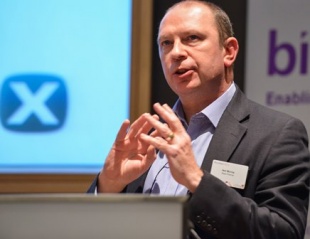- Home
- News
- What’s On
- Activities for Children
- Arts & Crafts
- Autos and Bikes
- Business events
- Car Boot & Auctions
- Charity events
- Churches & Religious
- Comedy
- Dance
- Days out & Local interest
- Education
- Exhibition
- Film
- Gardening & Horticulture
- Health
- Markets & Fairs
- Music
- Nature & Environment
- Spiritual
- Sport
- Talks and Discussions
- Theatre and Drama
- Business
- Local Information
- Jobs
- Deaths
- Charity events
- Contact Us
Redx Immunology signs up for Alderley Biohub

Drug discovery company Redx has formally launched a third subsidiary, which the AIM-listed group will locate at its facility at the Biohub, Alderley Park in Cheshire.
The investment will see the company creating 30 highly-skilled jobs in the next 12 months, with more to follow at the former Astra Zeneca site.
The Liverpool-based group said Redx Immunology would focus on developing new therapies for disorders of the immune system. It will be funded by a £4.2m grant from the previous government’s Regional Growth Fund and proceeds from the recent stock market listing.
It is intended that Redx Immunology will deliver up to eight new drug development candidates over the near to medium term for subsequent progression into clinical trials.
In a statement Redx said the move is in line with the Group’s stated strategy to “develop a third therapeutic area to generate additional pipeline assets for further partnering and licencing deals. Its creation also complements Redx’s current cancer-related drug programs which encompass immuno-oncology. “
Redx’s exisiting subsidiaries are focused on cancer and anti-infectives subsidiaries.
Chief executive Dr Neil Murray said: “Diseases involving the immune system represent some of the most defining public health challenges of the developed world. Our new R&D centre for immunology will build on the expertise that we are bringing to bear in the key area of tumour immunology, where we are looking to switch on the body’s immune system to attack cancer cells.
“Our new work in immunology will be focused around creating therapeutics that seek to turn off the immune system and tackle conditions such as inflammation and auto-immune diseases.
“We believe that Redx’s approach and methodology has the potential to make a significant contribution to the industry’s R&D pipeline in the immunology area and will be attractive to large and emerging mid-size pharmaceutical companies as they seek to collaborate with companies such as Redx to develop new therapies.”
Meanwhile Redx has welcomed a government-backed report on antibiotic resistance by top economist Jim O’Neill, which calls for the global pharmaceutical industry to pay into a $2bn (£1.3bn) innovation fund to revitalise research into antibiotics.
There are currently very few new antibiotics in development amid a global spread of resistant bacteria.
Neil Murray said: “As the review has highlighted, AMR (Antimicrobial Resistance) is one of the critical issues facing global public health today, and it is only by addressing the fundamental challenges unique to antibiotic drug development that we have any chance of tackling this crisis.
“Redx’s innovative partnership with the NHS is just one way that we are working to find solutions to the problem of AMR. We fully support the bold interventions proposed by the review.”

You must be logged in to post a comment Login